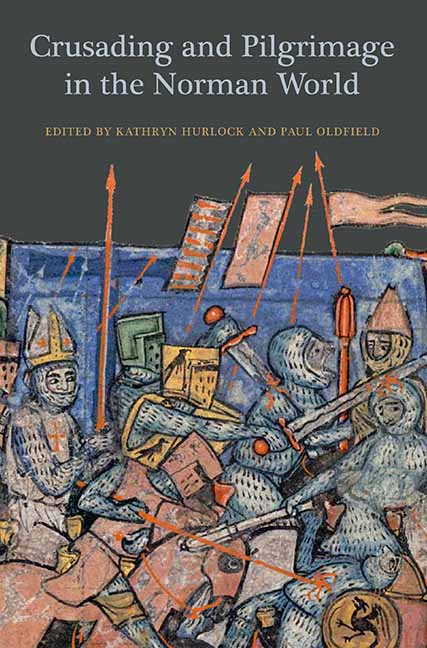11 - Normans and Competing Masculinities on Crusade
Published online by Cambridge University Press: 25 May 2021
Summary
In the late 1130s the Byzantine princess Anna Comnena wrote a history of the deeds of her father Emperor Alexius I, and described his encounter with the Italian Norman, Bohemond of Taranto, following the fateful siege of Dyrrachium (1107). Even in defeat, Anna was impressed by the masculine characteristics of this renowned war leader:
Bohemond's appearance was, to put it briefly, unlike any other man of those days seen in the Roman world, whether Greek or barbarian. The sight of him inspired admiration, the mention of his name, terror … His stature was such that he towered almost a full cubit over the tallest men. He was slender of waist and flanks, with broad shoulders and chest, strong in the arms; in general he was neither taper of form, not heavily built and fleshy, but perfectly proportioned.
She went on to praise his stature, shaven skin and light-blue eyes ‘which gave some hint of the man's spirit and dignity’. However, her appraisal of his masculine attributes was not without agenda, as she needed to cement in the minds of her audience just how significant a man her father Alexius had overcome:
There was a certain charm about him, but it was somewhat dimmed by the alarm his person as a whole inspired; there was a hard, savage quality in his whole aspect, due, I suppose, to his great stature and his eyes; even his laugh sounded like a threat to others.
Despite the debates over Anna Comnena's qualities as an historian, it is her image of Bohemond as a cunning, dangerous and overwhelmingly masculine warrior which until recently informed most scholars’ impressions of Bohemond's person and character; qualities which were also perceived to be quintessentially ‘Norman’. Although Bohemond was Italian by birth, his Norman heritage has been emphasised by a variety of subsequent historians. His activities in the Mediterranean, on crusade and in the establishment of the principality of Antioch seemed to typify a Norman ‘character’ which formed a significant cornerstone of the arguments in favour of a unified rationale to Norman expansion in the eleventh and early twelfth centuries. France and Murray, however, have done much to challenge established views about Norman identity in the specific context of the crusades: the former has considered problems with the application of Norman terminology in a crusading context, while the latter has explored ethnicity and identity during the settlement process.
- Type
- Chapter
- Information
- Crusading and Pilgrimage in the Norman World , pp. 195 - 214Publisher: Boydell & BrewerPrint publication year: 2015



